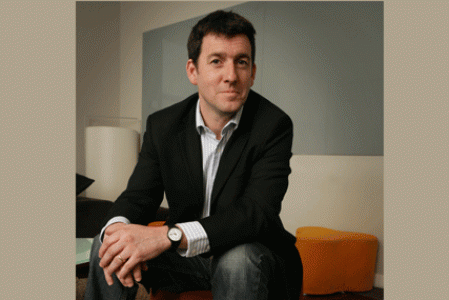Mindshare fejrer 15 års fødselsdag i år. I den anledning har vi ringet til hovedkontoret i London og fået Norm Johnston, vores Chief Digital Officer, til at tage sin spåkugle frem. Han giver os her sit bud på, hvordan den digitale verden ser ud om 15 år – og det er spændende læsning!
The World in 15 Years
Just think of the changes we have seen over the last 15 years: broadband, mobile, Google, Obama, Netflix, Oculus Rift, legal gay marriage, legal marijuana, Facebook, and so on. Even ever-so-stable-and-polite Canada has shaken us up with an enfant terrible pop star (Justin Beiber) and drug-binging mayor (Rob Ford).

So it’s hard to imagine what the next fifteen years will look like. One things is certain, there will be more. More people will be on the Internet in more places in the world, primarily through more mobile devices like China’s low-cost smartphone Xiaomi. Current predictions estimate that roughly 3 million new people will join the current 2.5 people connected to the Internet in the next six years, and by 2029 the number should be even higher, perhaps nearly everyone.
The Internet Takes Over (again)
But it’s not just more people, it’s also more objects, which will arguably be the biggest change.Cisco predicts that over 50 billion “things” – cars, TV’s, toothbrushes, footballs – will be connected to the Internet by 2020. TV itself is going through a major evolutionary step as it becomes digital and increasingly on-demand; 40% of TV’s in the US are now connected to the Internet. Wearable technology sales are booming, as more people track their quantifiable self, everything from sugar levels to sleep patterns are now counted and scrutinized. Juniper Research predicts the number of wearable devices shipped will rise from about 13 million in 2013 to 130 million in 2018.
The cumulative effect will be a world where a fast, ubiquitous, and intelligent Internet ecosystem will be the norm. Nicolas Negroponte famous predication will be realized: we will live in a world where digital will be “like air and drinking water, being digital will be noticed only by its absence, not its presence”. This speed, ubiquity and integration will also change media in many ways.
Arguably “more” connected people and objects are the easier things to predict. The question is given the exponential acceleration in technology, what would truly surprise us in 2029? What would knock our collective socks off? There are faint hints of all of these bigger changes now….digital whispers, nascent experiments, small start-ups at CES. My predictions would be the following.
Intelligent And Everywhere
First, artificial intelligence will become a reality. Ray Kurzweill, who has been unnervingly accurate on predictions over the last thirty years, has long believed singularity will happen by 2029. Singularity is essentially the belief that you will live on perpetuity through robotics and the Cloud and the vast amount of data collected on you over your lifetime. Ray now works at Google, who recently purchased artificial intelligence firm Deep Mind as well as robotics company Boston Dynamics amongst others. So this gives you some sense of Google’s ambitions to keep people searching, either by request or predictively, and whether you are dead or alive.
Second, and somewhat related to the first is Virtual Reality. Anyone who has donned a swanky pair of Oculus Rift goggles has caught a glimpse of this fabricated and simulated future, which by 2029 will be perfected and routinely used to virtually trial and travel to anything and anywhere. The Matrix will become a reality, a virtual living space to visit friends, family, co-workers, sports players or the fictional cast of Star Wars XX. This virtual world will also be seamlessly integrated into the real world, augmenting everyday life through your self-driving car windshield or your new Ralph Lauren Google Glass shades.
Third, swiping and clicking will be replaced by talking and motion. The way you interact with everyday objects, and brands, will fundamentally change as Kinect and Siri type technologies improve, expand, and get embedded throughout your house. Our advertising metrics will correspondingly change as we redefine things like brand engagement.
Finally, everything will be hyper-connected and intelligent. The long-mooted semantic Internet will go on hyper-drive by predicting your needs and refining your life by measuring and monitoring everything from your body to your house to your neighbourhood.
All of this will dramatically impact media and advertising by dialling-up the learning and principles we have developed and nurtured over the last twenty years of the commercial Internet. It’s going to be an extraordinarily exciting time for our industry.
Den første september fyldte Mindshare 15 år. Det fejrer vi med 15 dages fokus på markedsføring, både før og nu. Vi er det første mediebureau, der har integreret kommunikations- og reklamefunktionerne, så vi i dag kan kalde os et integreret Medie- og Kommunikationsbureau. Vi består af garvede kræfter, der har seniorkompetencerne og unge talenter, der kommer til at forme branchen fremover. Vores kunder er blandt de største i landet, og samtidig er de også de allermest tilfredse.
